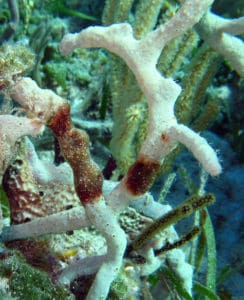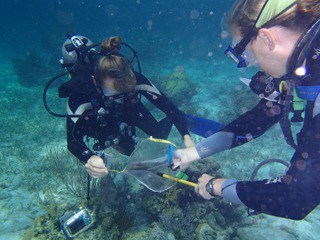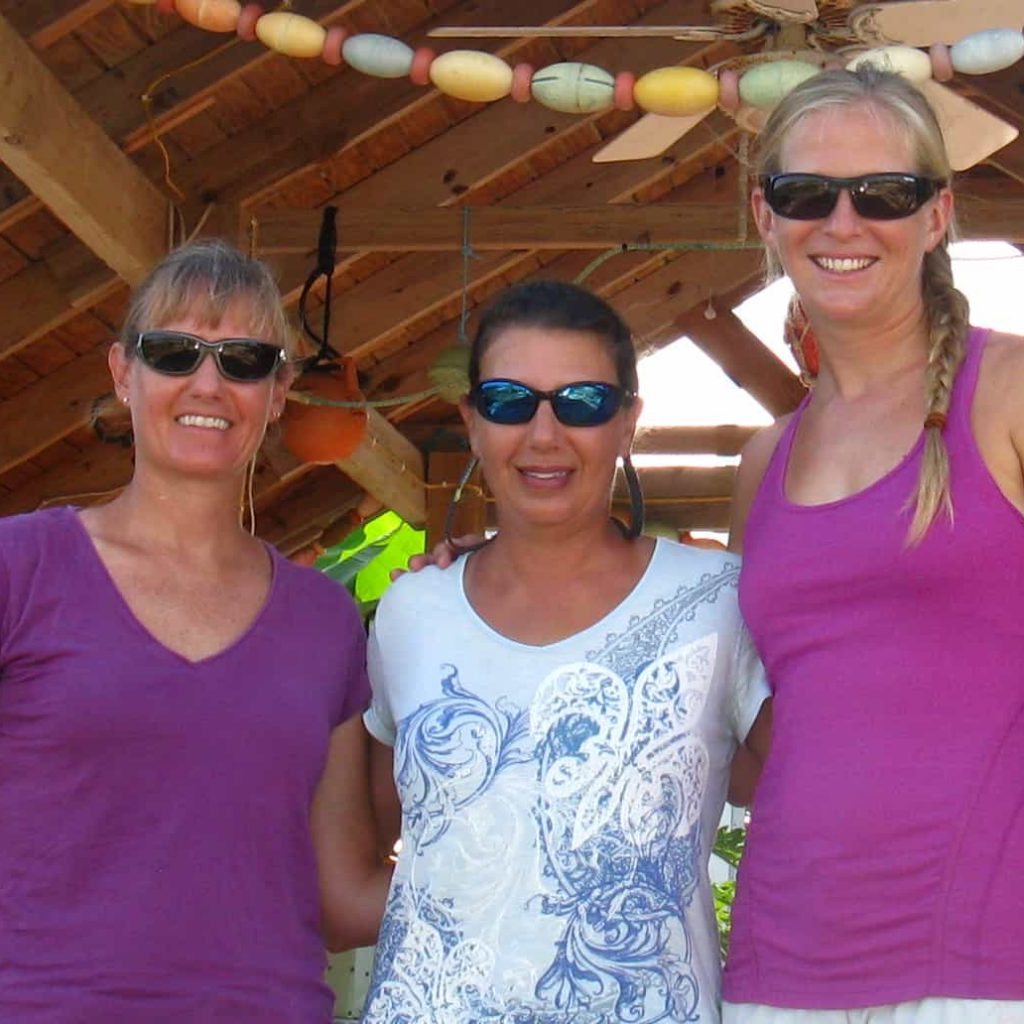 Deb Gochfeld (University of Mississippi) and Julie Olson (Univeristy of Alabama) have been following the dynamics of an infectious sponge disease, Aplysina Red Band Syndrome, in the Exuma Cays since they discovered it there in 2004. Working with graduate student Julia Stevens, the group continued their long term studies monitoring disease prevalence and impacts to host sponge populations over time and studying disease transmission dynamics, microbial ecology, chemical ecology, immune function, and responses to various stressors in healthy vs. diseased sponges.
Deb Gochfeld (University of Mississippi) and Julie Olson (Univeristy of Alabama) have been following the dynamics of an infectious sponge disease, Aplysina Red Band Syndrome, in the Exuma Cays since they discovered it there in 2004. Working with graduate student Julia Stevens, the group continued their long term studies monitoring disease prevalence and impacts to host sponge populations over time and studying disease transmission dynamics, microbial ecology, chemical ecology, immune function, and responses to various stressors in healthy vs. diseased sponges.
The team also conducted research on disease resistance of lionfish, testing lionfish mucus and associated bacterial communities for pathogen inhibition. Lionfish were introduced into the Atlantic Ocean over twenty years ago. Since that time, they have spread throughout the US Eastern Seaboard, Caribbean Sea, and Gulf of Mexico. Populations in the invaded regions have reached densities much higher than those reported from their native Indo-Pacific range, and they are drastically affecting the native reef systems. Historically, when invasive species were introduced into a region, they possessed the ability to bring with them non-native microorganisms. The goal of Julia Steven’s dissertation research was to analyze the bacterial communities associated with lionfish and assess their function.
 Previous research conducted in the Olson laboratory demonstrated that lionfish harbor a more diverse external bacterial community than native fishes. Highly diverse bacterial communities have been linked to disease resistance in fish, either by direct inhibition of potential pathogens or via production of secondary metabolites that degrade the potential pathogens. The research conducted at the Little Darby Research Station had three specific aims: 1) determine if bacteria isolated from external surfaces of lionfish have antimicrobial activity; 2) assess whether lionfish mucus has antimicrobial activity against known fish pathogens; and 3) evaluate whether bacteria isolated from lionfish are resistant to antimicrobial activity in the mucus chemical fractions.
Previous research conducted in the Olson laboratory demonstrated that lionfish harbor a more diverse external bacterial community than native fishes. Highly diverse bacterial communities have been linked to disease resistance in fish, either by direct inhibition of potential pathogens or via production of secondary metabolites that degrade the potential pathogens. The research conducted at the Little Darby Research Station had three specific aims: 1) determine if bacteria isolated from external surfaces of lionfish have antimicrobial activity; 2) assess whether lionfish mucus has antimicrobial activity against known fish pathogens; and 3) evaluate whether bacteria isolated from lionfish are resistant to antimicrobial activity in the mucus chemical fractions.


